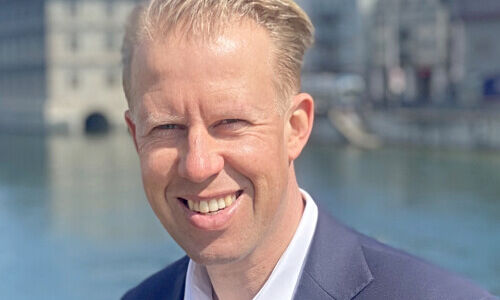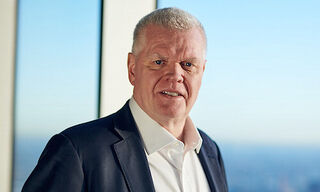Both major Swiss banks are currently disclosing their annual executive compensation figures. Headhunter Klaus Biermann tells finews.asia in an interview, how certain areas will see steep bonus declines.
Mr. Biermann, when you typically ask bankers how they are doing, they often reply by saying «ask me in March again after I have received my bonus». What is up with this fixation on compensation in the era of the new work paradigm and the search for purpose and fulfillment? Is it still there?
Compensation is still a large incentive for a career in finance. Even if bonuses are cut, they will remain an important factor in the industry. But a key precondition for high levels of pay is sustainable profitability and an appropriate strategic direction for the institution in question. Besides pay, banks also offer above-average social benefits and similar, which is very compatible with the new work paradigm we are seeing.
So will bankers be feeling better when March comes?
There are large differences that are dependent on structures and individual work areas. The shift away from bonuses and towards higher levels of fixed compensation has reduced their importance somewhat. We shouldn't extrapolate the entire compensation discussion for the industry as a whole from the extremely negative example set by Credit Suisse.
Why?
There are a great many institutions, particularly medium-sized private banks in Switzerland and Liechtenstein that work extremely sustainably.
«The employees that are only motivated by pay are certainly not the best ones»
They had to work for years to make an active effort not to convince the most expensive – notice I don't say the best – employees to work for them. That policy is reaping rewards for some of them now.
But that is usually the most frequent justification for high salaries. It is the only way to get the best people. What is going on?
When you are discussing that, you first have to establish who the best people are. Are they the employees who received special bonuses and high fixed pay despite poor results while also not fulfilling their responsibilities? Are the best people those who have put their institutions, areas, and products on a wholly incorrect strategic footing?
Those are rhetorical questions.
Let's assume that at the end of 2022, Credit Suisse decided that executive management would not receive a bonus. Beyond that, half of their fixed compensation would either be cut or converted into shares. And another step. Anyone with fixed compensation above 180,000 francs (roughly $193,000) would have their bonus cut in half. All other employees would not receive a bonus at all but would get preference in succeeding years for one if the institution in question returned to profitability.
What would happen?
Nobody can say for sure. The employees that are only motivated by pay are certainly not the best ones. Of course, some would quit after getting nothing. But Credit Suisse has a great deal of internal talent that could replace them. Maybe they would also be brave enough to take on new tasks and break out of old, inflexible processes and structures. This would lead to a new identity. There would also certainly be former Credit Suisse staffers who would be willing to start again at a more credible institution. Clients would honor all of that, have an understanding, and be loyal as well.
That sounds like wishful thinking.
The other way has not worked for years and the current situation speaks for itself. Credit Suisse needs a new identity. The board of directors and shareholders should be much stronger drivers of change. But any hope of that actually happening, when you look at the events of the past few years, is extremely slim. It is a great shame that all this has to happen on the back of regional employees and in lower and middle management.
Executive compensation figures were disclosed for UBS on Monday. One thing that is striking is that CEO Ralph Hamers earned about $1 million more, but total personnel expenses were down. What does that kind of thing do to employees?
The figures are large and incomprehensible for many. But in international comparison, the compensation package looks justifiable.
The increase seems reasonable given the bank's performance. But bonuses have to represent a variable component. In bad years they should decline. But it certainly is not a happy situation when a CEO's total compensation package goes up but employee salaries don't. If that was really the case, something should have been done to prevent that. Having sensitivity to employees is very important, particularly in times of success.
Unlike UBS, many institutions had a difficult year in 2022. How will that impact compensation?
The bonuses for 2022, will be significantly lower for certain groups and areas. On average, those in wealth management will fall between 20 and 30 percent. In asset management, they will be down 30 to 35 percent but they could even be down by as much as a half. Investment bankers also had a very difficult year, with bonuses falling by more than 50 percent. Naturally, there will be large differences.
Where are salaries still going up in finance?
Bankers with active client portfolios in private banking, investment banking, or asset management have at least the potential to break away from the prevailing trends. In portfolio management, we are also seeing relatively stable bonus levels.
«Shareholders should really be rebelling»
In general, we don't see much potential for broad, significant increases in compensation in finance.
Will that be the case when markets recover?
Salaries are already at a high level. In some places, recent salary policies are coming back to bite them. Unduly inflated salaries and bonuses were simply paid out.
In some crisis-ridden institutions, salaries didn't fall as quickly as revenues. What kind of signal is that? Shareholders should really be rebelling when they see that certain compensation frameworks have become outdated. But they have kept surprisingly quiet.
Younger workers find flat hierarchies and remote working more welcoming in the meantime. But when you look around, it seems like many financial institutions are going back to the pre-pandemic way of doing things.
The world of work won't be the same way that it was before Covid-19. But a model with a preponderance of remote work won't be the rule either. The most important thing in all of this is flexibility. But we shouldn't forget that it needs to function both ways. We sometimes get the impression that certain employees ask for a great deal while they seem to have almost infinite creativity when it comes to additional social benefits. At the end of the day, the model has to work for the company, the unit, and the structure. Personally, I find a model with one to two days a week of remote work ideal.
How do you handle that at Biermann Neff?
We have been working for many years together and we trust each other and we are very flexible. It doesn't matter where someone is but we also know when we have to discuss things face to face. It is also clear you can't implement that everywhere. We see a great deal of potential in models with additional vacation or in the number of flexible working days a year that an employee can choose from.
Klaus Biermann is the co-founder of Biermann Neff. The executive search firm based in Zurich focuses on finance-related positions focusing on wealth management, asset management, alternative investments, private market investments, and digital transformation.

























